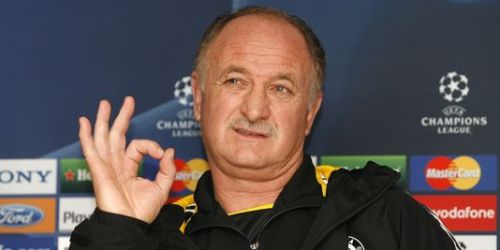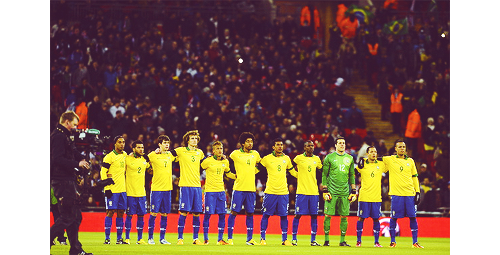
As the 2014 World Cup in Brazil looms closer, the host country, Brazil, seems to press another panic button. Brazil’s soccer federation lost confidence in Mano Menezes’s ability to return Brazil to soccer greatness and sent him packing.
Menezes brought together a new generation of Brazilians which included Neymar, Oscar, Paulinho, Ramires, Lucas Moura, Hulk and Damiao. That aggregation looked great playing against weak teams like the United States, China and Iraq. But against top tier international teams like Germany, Argentina and recently England, Menezes’s boys looked ordinary.
Brazilian football has been in the dumps since winning the World Cup in 2002. In 2006, France knocked out a team that presumably was partying excessively. In South Africa 2010, the Netherlands easily defeated Dunga’s assembled giants who played like pygmies.
Replacing Dunga, Menezes did some house cleaning. He even brought back Kaka who was disappointing in South Africa. Kaka, who does not start regularly for Real Madrid in international friendlies played in Brazil, seemed to have captured his old sparkle. But the new boss Scolari did not include Kaka in the squad against England.

In 2002, Brazil won the World Cup largely due to the playmaking and brilliance of Ronaldinho. The young lad was at the zenith of his game and Scolari recollects how Ronaldinho single handedly destroyed England in the quarter-final in 2002. Ronaldo and Rivaldo formed an explosive strike force and Cafu and Roberta Carlos were sensational attacking wing backs. Nevertheless, it was Ronaldinho who was the straw that stirred the drink. He was the playmaker “extra-ordinaire”.
In Brazil’s quest for World Cup glory in 2014, they have reinstated “Big Phil” Scolari who led them triumphantly in 2002. Scolari has anointed Ronaldinho as captain of the Selecao and imagines that with such leadership responsibility the partying Ronaldinho will work his way back to superb conditioning and prove to the world that he can once again rise to the top. For Scolari, Brazil’s future is imbedded in the past.
The proof of the pudding is in the eating. In his first game under Scolari, Ronaldinho who played only in the first half looked a half of his old self. In the first half, Brazil was awarded a penalty and Ronaldinho failed to convert. For the forty-five minutes, there was nothing that he did on the pitch that justified his return to Brazil’s national team.

Ronaldinho was a gifted player and during the first decade of the twenty- first century, he established himself as one of the great forwards/playmakers of all time. His initial years at Barcelona will remain memorable in the annals of world soccer. But somewhere along that march to greatness, Ronaldinho placed more emphasis on his night life than his football prowess. By the time he went to play for A.C. Milan in Serie A, that prowess had been significantly eroded. When Ancelotti coached him at Milan, he complained about his poor training habits. When Ancelotti made his departure from A.C. Milan, his successor, Allegri, also found that “clubbing” took precedence over “ball”. Not long after, Ronaldinho returned to Brazil.
Ronaldinho was not included in Dunga’s World Cup squad. Under Mano he has been in and out of Brazil’s national team, more out than in. With his recent reinstatement, Scolari is betting on a transformed Ronaldinho who will invariably lead to the rejuvenation of the aging Ronaldinho. The Brazilian playmaker is now 32 and in 2014 he will be 33. In the world of soccer, the thirties is considered over the hill, especially playing back to back games in the World Cup.
Ronaldinho is fighting twin demons - age and lifestyle. With a serious commitment to conditioning and an adoption of a spartan lifestyle leading up to the 2014 World Cup, Ronaldinho could be an asset to the Brazilian national team. Despite his sub-par performance at Wembley against England when Brazil was beaten 2-1, Scolari has indicated that he is not yet ready to discard all faith in the aging Ronaldinho. Their two fates appear to be inextricably intertwined. Scolari’s future as the coach of the Brazilian national team may very well be determined by Ronaldinho’s quest to recapture greatness. History in the world of soccer seldom repeats itself. For both Scolari and Ronaldinho, the reconstruction of the past will determine their future.
No comments:
Post a Comment